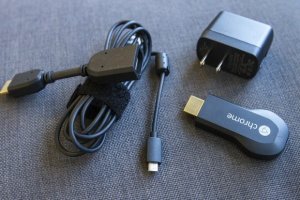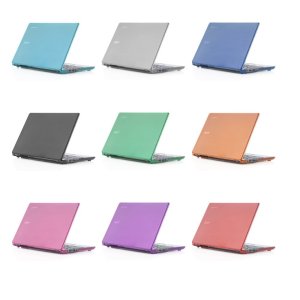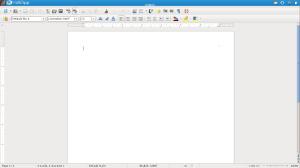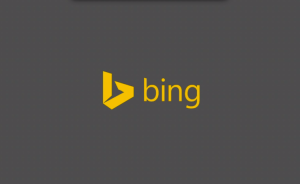
Microsoft are reportedly considering a Chromebook rival called the Bingbook. The Bingbook will be powered by a light version of Windows 8.1 with key Microsoft Services, and is intended as a free or low-cost Upgrade to Windows 7.
Microsoft are that desperate to get people to Upgrade to Windows 8.1 that they would go against their anti-Google Scrooogled campaign to get people to Upgrade to Windows 8.1.
Microsoft need to seriously update their web services before even contemplating a Chrome OS rival.
- The outlook.com web-mail service needs to be brought up to the same level as GMail as it's pretty basic.
- The Microsoft Calendar within outlook.com needs to be brought outside of outlook.com.
- OneDrive needs to be brought outside of outlook.com, and have an increase of free storage from the current 7GB.
- The Office web apps need to be updated to allow direct printing instead of converting to a PDF and then printing at draft quality at best.
- Internet Explorer needs to be made a little more lightweight to support lower screen resolution and hardware spec of a Netbook.
For Microsoft to make a competitor to Chrome OS they'd have to abandon the Modern UI of Windows 8.1 which I can't see them doing in a million years as they seem to think that it's perfect despite the dismal uptake of Windows 8/8.1.
I can see several catches to the Microsoft Bingbook idea and one of them being having to buy a yearly or monthly Subscription to Microsoft Office 365 once you've purchased a Bingbook, which is fair enough if they make a free version for people who have a Windows 7 Laptop or Desktop that works perfectly fine, but if people have to buy new Bingbook then people aren't going to be too pleased after paying $250 or £149 (based on current exchange rate and the proposed $250 retail price).
Microsoft will then have to suck up to Google to licence Google Cloud Print or develop their own version, as well as tailor the Office web apps for better printing as at present both the free Office web apps and the paid Office 365 versions convert documents to PDF before downloading them and sending them to your printer, and the quality is only Draft quality at best and not suitable for anything professional such as business use and for say job applications e.t.c, and since the largest group of Windows 8/8.1 hold outs are Enterprise users.
This proposal also contradicts Microsoft's announcement of extending the pre-install and support life for Enterprise users of Windows 7. But with the amount of U-turns that Microsoft have done since the initial release of Windows 8 then this proposal wouldn't surprise me in the least.
Conclusion
If Microsoft does go ahead with this proposal the initial release would be worse than the initial release of Chrome OS as Microsoft will probably rush through the initial release to try and claw back some of the money that they have lost due to the poor sales of Windows 8/8.1.
If Microsoft want to build a true competitor to Chrome OS then they will have to create a stripped down Windows 8.1 that doesn't use the Modern UI, and instead go down the Chrome OS root and build a lightweight Internet Explorer and call it the Bing Browser and build a kind of Bing OS around it with all the apps e.t.c being web apps and browser add-on's as the main selling point of Chrome OS is being that a Chromebook is light weight and portable with excellent battery life. I can remember my first Netbook ( an Advent one, can't remember the model) it had a 10" screen a keyboard that was so cramped it was impossible to use, the battery life wasn't the best and it wasn't that light. It also ran Windows XP when it was more than capable of running Windows Vista, which I then put Windows Vista Ultimate on before installing Windows 7 Ultimate on which it still had on right up until dying earlier this year.
Since then I moved on to an Acer C720 Chromebook that's lightweight with excellent battery life. It's so light that I carry it around with me everywhere I go even if it doesn't get used.
Microsoft need to take note of Chrome OS if they really want to create a Chrome OS rival, and I think they're going to struggle to get many OEM's on board as Bingbook partners since Chrome OS's popularity has risen in recent months and the Scroogled campaign hasn't done Microsoft any favours. I think that the only realistic way that Microsoft can make a go of Bingbooks is if they retire the Microsoft Surface RT line of Tablets and replace them with the Bingbook line.
The proposition of giving away the Bingbook OS to OEM's or even making it a free Upgrade to Windows 7 is probable all talk by Microsoft as Windows licence sales both to OEM's and through Retail channels makes them money, buy giving the Bingbook OS away to OEM's and possibly even as a free Upgrade to Windows 7 means that they're going to have to find a way to make money from Bingbooks, but then the increased sales of Office 365 Subscriptions or OneDrive Storage Upgrade Subscriptions will more than make-up for the loss of revenue from Bingbook licences, but considering that Windows 8/8.1 take-up has been slow I can't see anyone adopting the Bingbook concept as the Microsoft Services aren't as mature as their Google counterparts, also Microsoft really need to make a cloud version of the VBA Scripting language to allow for people who have spent time creating Scripts or even extensions to the likes of Word and Excel to be able to use the Microsoft Office web apps and re-create all of their Scripts.
The real beauty of Google Services is that the Google Apps Script language that's used to create custom functions, extensions and scripts for the various services is all cloud based and stored in Google Drive meaning that they'll be available no matter if you're using a Mac, Windows, Linux or Chrome OS Device meaning that your Google Sheets functions and extensions will work no matter what OS you're using.
Chrome OS is being constantly updated with new features and you can always switch between the Current Stable, Beta and Development releases without too much trouble, but I can see Microsoft abandoning Bingbooks once Windows 9 is released as supporting low-end hardware isn't really Microsoft's thing, also the Bingbook concept is about boosting Windows 8.1 take up.
Roland

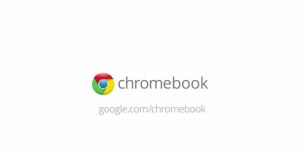 The Chrome OS Build 35.0.1883.2 Developer Channel includes new features some of which are carried over from the Chrome OS 34 build on the Developer Channel.
The Chrome OS Build 35.0.1883.2 Developer Channel includes new features some of which are carried over from the Chrome OS 34 build on the Developer Channel.

